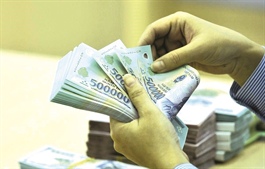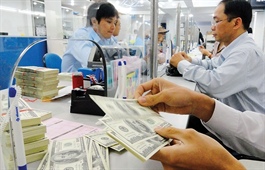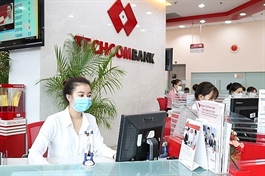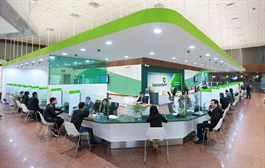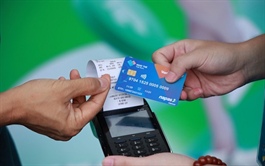Visa study: Unlocking immense benefits of commercial credit cards
Visa study: Unlocking immense benefits of commercial credit cards
Towards realising the goal of turning Vietnam into a cashless nation and boosting electronic payment acceptance among consumers, merchants, and businesses across the nation are enhancing market awareness about commercial credit cards and the sizeable financial and practical benefits they offer.

Commercial cards promise multiple benefits to people and businesses
|
Digitalisation through the use of commercial credit cards (or business cards) can help businesses to quickly itemise and categorise expenses, allowing them to easily identify areas of the business that are costly or inefficient. As such, commercial credit cards can act as a highly effective business planning and operational budgeting tool.
With enhanced reporting solutions, businesses can also safeguard against misuse or poor management of employee expenses. Digitalising company expenditure can allow employers to look at existing expense divisions, such as travel and entertainment or daily procurement, and identify potential areas for streamlining or cost-saving within the company’s operations.
These useful findings are part of a recent study by Visa, the global payments technology company, themed “Vietnamese Market Primed to Unlock Significant Benefits from the Use of Commercial Credit cards.”
Also according to the study, one key factor currently inhibiting the modernisation of business-to-business (B2B) payment methods is the misconception that switching to commercial cards will mean missing out on cashback or reward points associated with traditional methods. As a result, many businesses remain unaware, or may be underestimating, the significant cost savings or attractive financial incentives attributable to business cards.
For example, while some businesses are concerned that wire transfer or traditional payment methods will present better buffer periods and cashflow flexibility, in many cases the cashflow benefits of business cards, including Visa Business Card, can be even more favourable.
| Through the use of business card incentives like interest-free days and instalment payments, SMEs can realise alternative ways to access and expand working capital, and this in turn can expedite a company’s growth. |
Through the use of business card incentives like interest-free days and instalment payments, small- and medium-sized enterprises (SMEs) can realise alternative ways to access and expand working capital, and this, in turn, can expedite a company’s growth. Business cards can also give rise to improved cash-flow forecasting and enable the optimisation of working capital, which can also save money for businesses in the long run.
In addition to improved cash flow, there are sizeable cash back, promotional, and non-financial incentives to digitalising B2B payments. For example, Visa has negotiated discounts with more than 30 service providers in part of an initiative to bring meaningful benefits to Visa business card holders in Vietnam. By issuing discounts for key service providers, businesses may be encouraged to take advantage of new technologies and services that can help the company achieve further growth.
Another benefit of business cards that is sometimes overlooked is the optimisation of time and labour within enterprises.
A survey conducted by Visa in the Asia-Pacific in 2019 discovered that the average SME spends 60 hours a month on administrative tasks such as invoicing, reconciliation, and expenses. One of the major setbacks of relying on wire transfer is that processing times for fund transfer and post-transaction reconciliation can be cumbersome, time-consuming, and leave room for errors and delays.
By using business cards, SMEs can save a significant amount of their accounting and finance team’s time due to fast processing and automatic itemisation that is inherent in digital payments. By making these divisions more efficient, companies can unlock time and resources to focus on growing their business.
“As the B2B economy continues to grow and internationalise, achieving faster and more efficient transactions between enterprises will become a key priority in Vietnam,” said Dang Tuyet Dung, country manager for Visa Vietnam and Laos. “The seamless and secure nature of digital payments is already empowering businesses with better business planning, sizeable cost savings, and optimised financial resources. Visa business cards are supporting this transition and paving the way for SMEs to develop their business operations in a way that reflects modern-day advances.”
With SMEs accounting for 98 per cent of the 760,000 enterprises in Vietnam, and with growth being a key priority for small businesses, this sector is primed to take advantage of modernised payments. And with SMEs contributing approximately 45 per cent in GDP and responsible for creating 5 million jobs by the end of 2019, improved processes and capital in this landscape will mean faster growth for Vietnam as a whole as it continues to rise on the regional and global stage.








